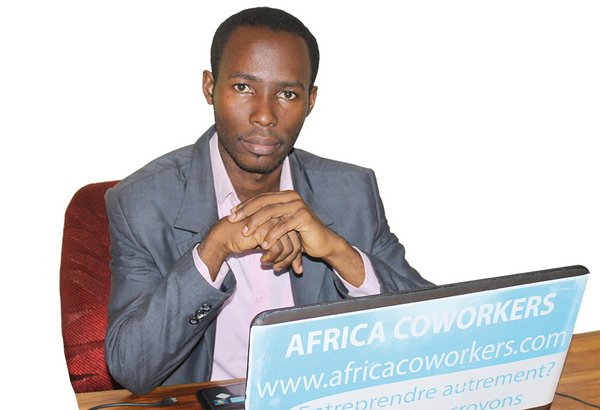 Download this article in magazine layout
Download this article in magazine layout
- Share this article
- Subscribe to our newsletter
“Rural areas are full of opportunities for business start-ups”
Mr Tchably, how did the idea of “African Coworkers” emerge?
The idea of setting up a coworking space came to me as a result of the failure of my first company in 2012. It is very difficult to advance alone, especially if there is no support. Collaborating was the solution to avoid the costs and thus reduce the expenses of our projects.
Coworking models are widespread in many African cities, but not so much in rural areas. Why have you opted for a rural programme?
It must be said that today, we cannot talk about coworking space without talking about Internet connectivity. The Internet is a fundamental element that gives life to the coworking spaces. However, it should be noted that rural areas do not have the necessary infrastructure to facilitate the proper functioning of a coworking space. At our level, we certainly have launched our coworking space in town, but with a vision turned towards the rural world. Today, besides our start-ups, we are working on various projects related to rural areas with the aim of finding solutions to bridge the disparity between the rural world and the cities.
What kind of projects are they?
For example, we have launched the VOAN project. Its aim is to enable the inhabitants of rural regions to receive all important information via telephone. This information may be easy to obtain via the Internet, but people in rural areas have no access to it. In concrete terms, what we want to do is to set up a call centre via which people can inform themselves about a wide range of everyday issues, such as about which formalities are required for certain documents (birth certificate, criminal record), or where they can state whether they have agricultural products on sale in their range so that we can help them sell them. In addition, we have programmes on the distribution of Internet access in rural areas, on sensitisation towards saving and credit, on training entrepreneurship in rural areas, etc.
What kind of business opportunities do you see in rural areas?
Rural regions are full of opportunities for business start-ups, in the most diverse areas, and not only in agriculture. For example, let’s take the lack of infrastructure in power supply. There is a huge potential here, for instance for generating electricity via solar plants or other regenerative energy sources such as biogas from animal excrements. After all, animal husbandry is one of the key characteristics of rural areas, so it wouldn’t be a problem to generate biogas. The education sector also holds a considerable potential. In many areas, the school infrastructure is poor, which means there is a big opportunity for those interested in training and capacity building. And lots of rural areas offer a major tourist potential thanks to their cultural and historical specialities. These tourist attractions can be turned into assets and above all provide good business opportunities for the rural population. But agriculture also bears much potential. Everywhere you can see a lack of mechanisation. Companies could develop cheap machines and appliances that are adapted to the conditions in our agriculture.
Is there enough government support for young entrepreneurs in Togo?
As young people we must be development ambassadors for our country, and it is above all our task to accompany the government in its mission. However, the government should make efforts to enhance the entrepreneurial environment by lowering taxes for young entrepreneurs, for example, and by facilitating administrative procedures. We also want it to include us in the decision-making process and take our proposals into account.
And how do you cover your expenses?
We have been trying to tap financial sources for our activities since the inception of our co-working spaces. Unfortunately, however, we have so far been unable to find partners providing us with financial or technical support. Nevertheless, this is not going to keep us from continuing to pursue our goals. But we do indeed urgently require support for our activities, especially for the start-ups working together with us.
What is your vision for the future?
My vision is for rural areas to become very attractive and develop into sources of business ideas, encouraging youth to turn to them.
Mipagyendou Tchably is founder and chairman of African Coworkers, an association of five young entrepreneurs who, since 2016, have been providing young Togolese enterprises against a fee with various facilities and platforms to address the topic of going into business and managing businesses.
Contact: dieudonne.tchably(at)gmail.com





Add a comment
Be the First to Comment